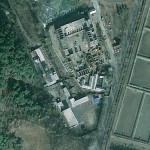Institute for Far Eastern Studies (IFES)
Business enterprises under the direct supervision of the DPRK Cabinet appear eager to expand business operations, from mine development to the sale of gochujang (red pepper paste), in order to procure funds necessary for state-level development projects and running the government.
The North Korean cabinet-supervised Korea Taeyang Corporation* revealed on its homepage on October 18, 2015, “We are actively pushing forward joint ventures in the selling and manufacturing of molybdenum products with major companies in China, Switzerland, and Brazil.”
“The molybdenum mine located in Changjin County in South Hamgyong Province produces hundreds of tons of molybdenum concentrate every year, so we are manufacturing molybdenum steel at the molybdenum steel refinery and exporting it,” the company explained.
Their work is not restricted to mining, but extends to transportation and distribution, as well as the restaurant business. The subsidiary Korea Taeyang Transportation Co. owns twenty container wagons, thirty freight cars over 20 tons, fifty 10-ton freight cars, and fifty freight cars under 10 tons.
The Taeyang electrics store, located in Pongnam-dong of Pyongyang’s Pyongchon District, specializes in the selling and repair of electrical appliances and electronics like computers. It was also involved in the vitamin C factory built in 2013 in accordance with Kim Jong Il’s dying injunctions.
In addition, there are ostrich ranches and tourist souvenir shops, as well as restaurants that sell ostrich meat and other North Korean and Chinese cuisines in Pyongyang’s Yonpung Restaurant.
Furthermore, it also operates fertilizer and feed factories, duck ranch, pig factory, instant noodle factory, tobacco factory among others. It also has overseas offices in Beijing, Dalian, Shenyang and Africa.
The corporation expressed, “We are hopeful to make connections with buyers interested in ostrich leather, ostrich crafts, agricultural machineries, teak wood manufactured goods, and red pepper and bean pastes.
The president of Taeyang, Pak Sun Chol, is a delegate to the Supreme People’s Assembly and deputy director of Cabinet affiliated General Bureau of State Development.
On Naenara, the official web portal of the DPRK (targeted toward an international audience), the corporation expressed its intention to “meet the continuous challenges in new areas under the direct guidance of the Republic and develop into a technology-focused company that will strengthen cooperation and exchanges with companies from around the world.”
While some of the profits earned by the company are used by the Cabinet for its operating funds, most of the profits are reportedly used for state construction projects.

